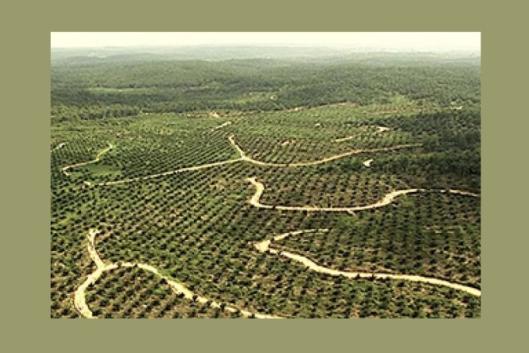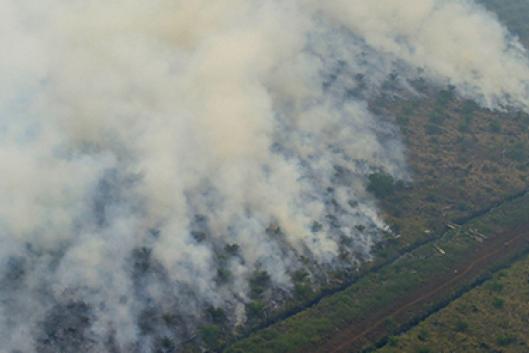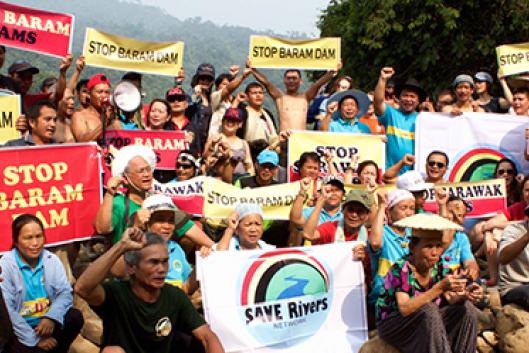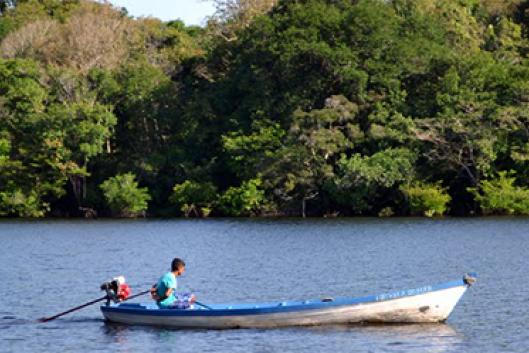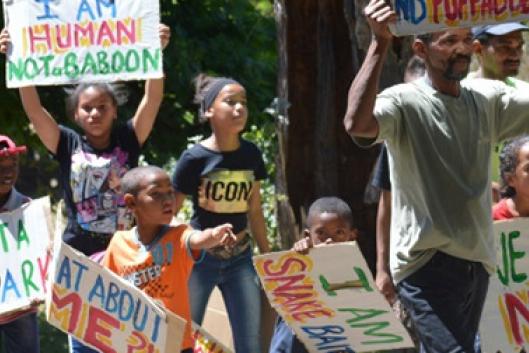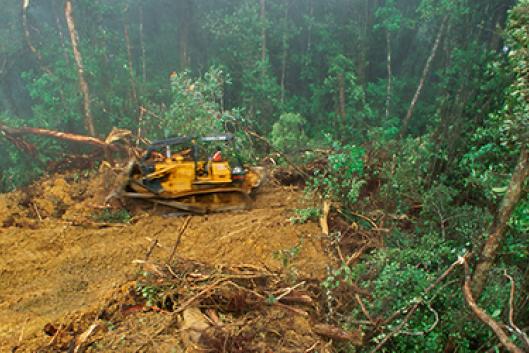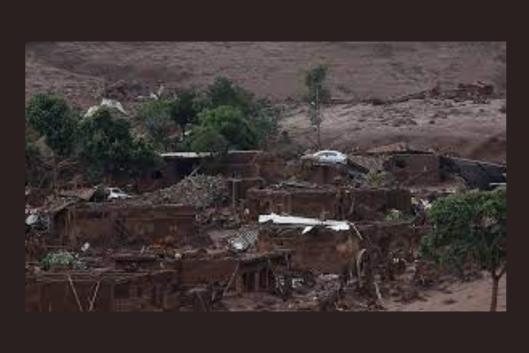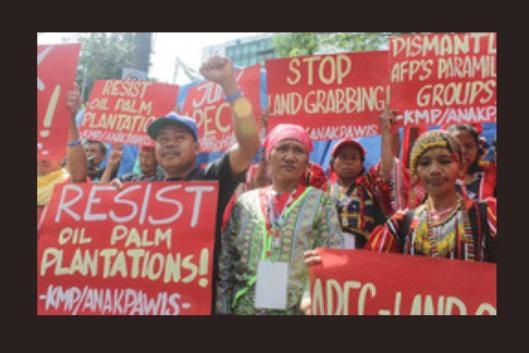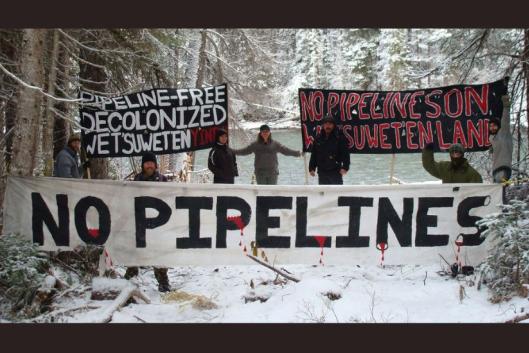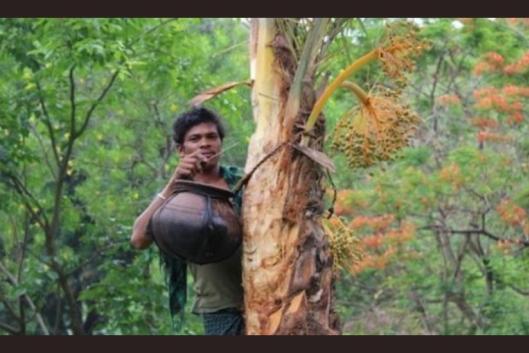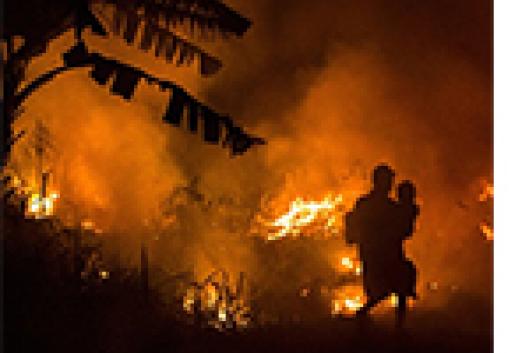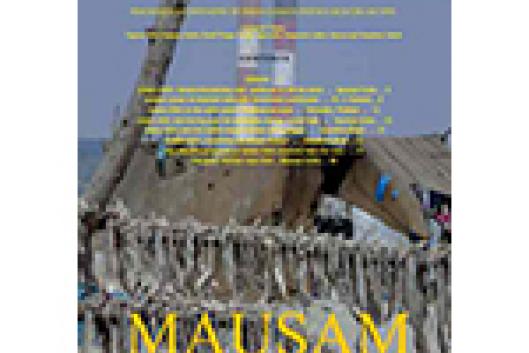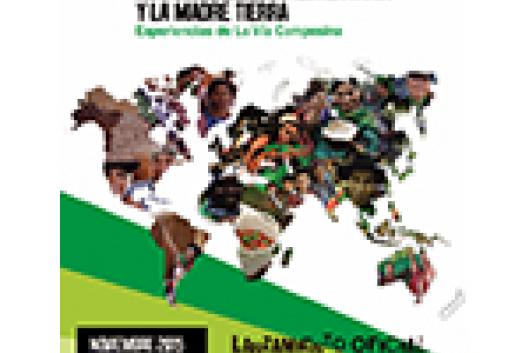Bulletin Issue 220 – November 2015
Realities hidden under the "green" discourses in Paris
WRM Bulletin
220
November 2015
OUR VIEWPOINT
REALITIES HIDDEN UNDER THE "GREEN" DISCOURSES IN PARIS
-
11 December 2015The Scale of Disaster The forest and land burning madness is going rampant again in Indonesia. Up to November 16, the Global Fire Emission Database (GFED) registered 122,568 hotspots across the Archipelago. The increase in the number of hotspots since January 2015 is the fastest compared to 2003 and 2014. (1) In terms of size, the fires reportedly burned about 21,000 square kilometers of forest and peat lands (2) in just a few months, between June and October 2015. (3)
-
11 December 2015Indigenous peoples fighting the construction of dams in many parts of the world stand in solidarity with the second year anniversary of the blockades against the Baram Dam in Sarawak, Malaysia. The blockades have successfully stopped the works on the Baram Dam as well as its access road for the last two years. The World Indigenous Summit on Environment and Rivers released a declaration, which, among others, acknowledges the widespread suffering and destruction caused by dams, asks to halt ongoing projects that are in conflict with local groups as well as demands that dams should no longer be presented as “climate neutral”.
-
11 December 2015The Forestry Community Forum is an organisation of dwellers and labour tenants residing in plantation forestry / worker villages in the Boland region of the Western Cape Province, South Africa. The overall goal is to achieve land reform and local economic opportunities for sustainable livelihoods. Constituted in 2011, when villagers started to organise and mobilise, the Forum has a total of fourteen participating villages. Its mission is to organize and mobilize villagers for fairness, equality, redress and transformation of the tree monoculture plantations sector that continue to benefit a few at the cost of villagers, i.e. tenants and workers.
-
PEOPLES IN ACTION
-
11 December 2015A declaration to be launched during the UN climate negotiations aims to draw attention to the need to keep fossil fuels in the ground and unburned, while supporting a just transition toward a clean energy future. The declaration recognizes that “the extraction, transportation and consumption of fossil fuels has caused severe damage to the earth, air, water, and all forms of life; and is the number one contributor to climate change and massive species extinction.
-
11 December 2015On November 5th, one of the largest environmental disasters in the history of Brazil occurred. Two dams operated by mining company Samarco burst in the state of Minas Gerais, dumping sludge with the company's toxic waste in an area where hundreds of families lived. The disaster killed dozens of people, destroyed hundreds of homes, and destroyed the life of one of Brazil's major rivers, the “Río Doce.” This in turn has affected the water supply of hundreds of thousands of people and the livelihoods of thousands of peasants and fisherfolk, has caused the contamination of mangrove forests and has led to the loss of tourism in the region. The affected communities, al
-
11 December 2015In early November, a gathering of peasants and indigenous peoples from Mindanao, Bohol and Palawan, denounced the government’s plan to devote eight million hectares of land to oil palm by 2023. Oil palm plantations in the Philippines cover almost 55,000 hectares. The Philippine Coconut Authority’s (PCA) 2014 to 2023 road map has identified about a million hectares for potential oil palm farms. A participant from the gathering, held at a makeshift tent in front of the Department of Environment and Natural Resources, criticized the Department for “pimping agricultural and ancestral lands to oil palm plantations and mills under the guise of reforestation.”
-
11 December 2015The Unist’ot’en camp in North-Western British Colombia, Canada, has since 2011 been maintaining a check-point to control access through their territory to stop government and industry plans to build several gas and oil pipelines. These pipelines form part of an energy corridor that will serve to unlock the vast energy reserves of the tar sands in the neighbouring province of Alberta and transport fracked gas with disastrous implications for the communities, local habitats and climate. The camp was established to oppose these projects, to defend the sacred headwaters, the salmon that spawn there and to maintain their autonomy.
-
11 December 2015The Indian government is producing many proposals to make more profit from the country’s forests. These include wider application of their huge Compensatory Afforestation Fund and private leasing plans. India’s Orissa state is trying again to start mining bauxite for the aluminium smelter of Vedanta Ltd, despite long-standing protests and opposition. All these plans would lead to evictions and other violations of forest communities’ rights as well as the degradation of biodiversity, as the proposals foresee replacing forests with monocultures, mines etc.
RECOMMENDED
-
11 December 2015An article from “The Guardian” highlights how despite fire raging across over 5,000 km in Indonesia, the media “dominated by corporate press releases, photo ops and fashion shoots” is not paying attention. This catastrophe is having severe effects on many levels. Children are being prepared for evacuation on warships. Populations of species, including threatened species, are going up in smoke at an untold rate. Much of the forest sits on great domes of peat, releasing clouds of methane, carbon monoxide, ozone and other gases. The plumes extend for hundreds of kilometers, causing impacts even on neighbouring countries. So why is this happening?
-
11 December 2015The market-based and techno-fix solutions on the table for the 2015 UN climate talks are diverting attention from the real culprits and delaying real action. Most political leaders have been happy to choose measures that suit existing business models and continued corporate profit-making. There’s little prospect of the deal that’s being cooked up in Paris delivering anything for the climate. But it could still be an important turning point in terms of de-legitimising the dangerous and destructive role that corporate climate criminals are currently playing in climate policy-making.
-
11 December 2015The India Climate Justice Collective has released the fifth issue of the “Mausam” magazine. This time the focus is on India’s Intended Nationally Determined Contribution, submitted to the UN Climate Convention in October, to which they say: “We think it was not nationally determined... Nor does it contribute in any way towards solving the climate crisis: if anything, it can only help worsen the crisis.” Eight articles and the editorial analyse India’s coal industry, nuclear power, the water sector, renewable energy, carbon offset projects and climate finance regarding the country’s proclaimed contribution for addressing climate change.
-
11 December 2015The collective efforts of various organizations from Africa, America, Europe and Asia have resulted in the study booklet: “Peasant Agroecology for Food Sovereignty and Mother Earth, experiences of La Via Campesina”. From their distinct territories, 10 articles share experiences in agroecology training, organizing, production and marketing of healthy foods. This set of experiences represents a dynamic range of practices and knowledge, both for training within the movement and as a mechanism for additional knowledge exchange and rural-city dialogue.
-
